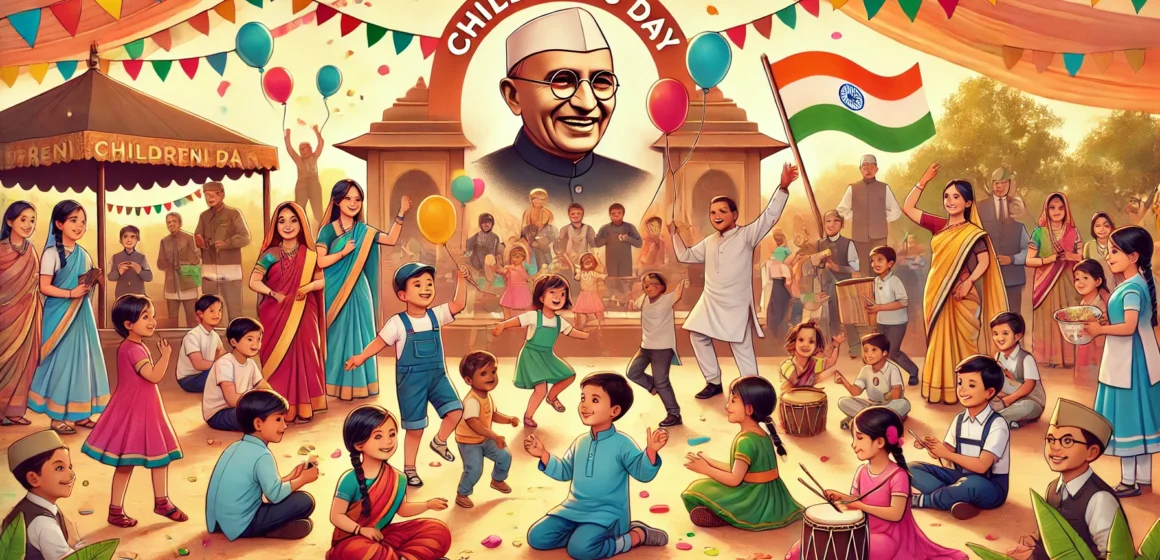Children’s Day is a joyful celebration that honors the innocence, charm, and limitless potential of children. Observed in many countries on various dates, the day typically serves as a reminder of the fundamental rights of children and emphasizes the need to foster environments where kids can grow, learn, and thrive. In India, Children’s Day is celebrated on November 14th, the birthday of Pandit Jawaharlal Nehru, the nation’s first Prime Minister, who was fondly known as “Chacha Nehru” for his deep love for children.
The Significance of Children’s Day
Children’s Day is more than just a day of celebration—it’s a call to action. Around the world, the day focuses on building awareness about children’s rights, education, healthcare, and safety. Many children face challenges like poverty, lack of access to quality education, child labor, and abuse. This day aims to spark conversations and actions that address these issues, creating opportunities for children to live freely, happily, and safely.
History and Background
In India, Children’s Day was originally observed on November 20th in line with Universal Children’s Day. However, after the death of Pandit Nehru in 1964, it was decided to commemorate his birthday, November 14th, as Children’s Day in recognition of his love and dedication to young people. Nehru envisioned a future where children would grow up in a nurturing, inclusive society, and his legacy remains an inspiration
How Children’s Day Is Celebrated
Children’s Day is celebrated with enthusiasm and a variety of activities:
- School Events: Schools organize cultural programs, storytelling sessions, competitions, and games. Teachers often perform for the students, creating a fun environment.
- Community Activities: Local communities, NGOs, and organizations hold events to support disadvantaged children, providing meals, educational supplies, and entertainment.
- Public Awareness Campaigns: Children’s Day often features campaigns that raise awareness about children’s rights and issues affecting children, including initiatives that encourage vaccination, schooling, and health check-ups.
- Creative Expression: Children are encouraged to express themselves through art, music, and drama, celebrating their talents and fostering a sense of community
Why Protecting Children’s Rights Matters
Recognizing and protecting children’s rights is essential for a just and equitable society. Children have a right to be safe, healthy, educated, and nurtured. By investing in children today, we build stronger societies for the future. Children’s Day serves as a crucial reminder that each child, regardless of background or circumstances, deserves a life of opportunity and respect.
Ways to Make a Difference on Children’s Day
- Support Local NGOs: Donate time, funds, or resources to organizations working for underprivileged children’s education, healthcare, and welfare.
- Volunteer at Schools or Orphanages: Spend time with children who may not have family support. Bring joy to their lives through small activities, gifts, or storytelling sessions.
- Raise Awareness: Use social media to talk about issues affecting children today, such as child labor, education rights, and mental health.
- Organize Activities: Community events, storytelling, and interactive games can make the day enjoyable while promoting the importance of learning and growth.
A Brighter Tomorrow for Every Child
Children’s Day celebrates the innocence and wonder of childhood, but it also serves as a powerful reminder of our collective duty to create a safe and supportive world for every child. Whether it’s through small acts of kindness, policy advocacy, or personal involvement, we can all contribute to a better tomorrow where children’s dreams can flourish.
Let’s celebrate Children’s Day by reaffirming our commitment to building a brighter, happier future for the children who hold the promise of a better world.




Leave a Reply